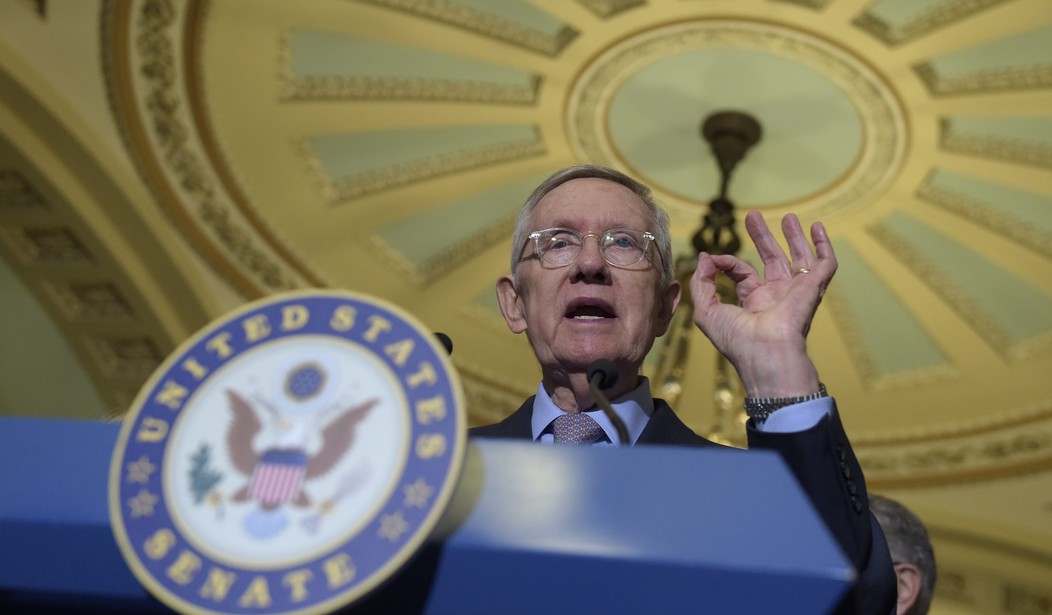WASHINGTON — Senate Minority Leader Harry Reid (D-Nev.) sent a letter to FBI Director James Comey today accusing him of potentially breaking the law and lamenting he was “wrong” to fight for Comey’s confirmation in 2013.
“Your actions in recent months have demonstrated a disturbing double standard for the treatment of sensitive information, with what appears to be a clear intent to aid one political party over another,” Reid, who is retiring at the end of this Congress, wrote. “I am writing to inform you that my office has determined that these actions may violate the Hatch Act, which bars FBI officials from using their official authority to influence an election. Through your partisan actions, you may have broken the law.”
Reid argued that “the double standard established by your actions is clear.”
“In my communications with you and other top officials in the national security community, it has become clear that you possess explosive information about close ties and coordination between Donald Trump, his top advisors, and the Russian government – a foreign interest openly hostile to the United States, which Trump praises at every opportunity,” he wrote. “The public has a right to know this information. I wrote to you months ago calling for this information to be released to the public. There is no danger to American interests from releasing it. And yet, you continue to resist calls to inform the public of this critical information.”
“By contrast, as soon as you came into possession of the slightest innuendo related to Secretary Clinton, you rushed to publicize it in the most negative light possible.”
Reid continued that in Comey “tarring Secretary Clinton with thin innuendo, you overruled longstanding tradition and the explicit guidance of your own Department.”
Attorney General Loretta Lynch and Deputy Attorney General Sally Yates reportedly disagreed with Comey’s decision to notify eight congressional chairmen Friday that he had approved action to “take appropriate investigative steps designed to allow investigators to review these emails to determine whether they contain classified information, as well as to assess their importance to our investigation.”
“Although the FBI cannot yet assess whether or not this material may be significant, and I cannot predict how long it will take us to complete this additional work, I believe it is important to update your Committees about our efforts in light of my previous testimony,” Comey wrote.
Reid told the FBI director that he “rushed to take this step eleven days before a presidential election, despite the fact that for all you know, the information you possess could be entirely duplicative of the information you already examined which exonerated Secretary Clinton.”
The majority leader pointed out a memo from Yates on March 10 that “makes clear that all Justice Department employees, including you, are subject to the Hatch Act.”
“The memo defines the political activity prohibited under the Hatch Act as ‘activity directed towards the success or failure of a political party, candidate for partisan political office, or partisan political group,'” Reid’s letter continued. “The clear double-standard established by your actions strongly suggests that your highly selective approach to publicizing information, along with your timing, was intended for the success or failure of a partisan candidate or political group.”
Reid added that “when Republicans filibustered your nomination and delayed your confirmation longer than any previous nominee to your position, I led the fight to get you confirmed because I believed you to be a principled public servant.”
“With the deepest regret, I now see that I was wrong.”
President Obama nominated Comey to replace retiring FBI Director Robert Mueller in June 2013. Comey was confirmed by the Senate the next month on a 93-1 vote, with only Sen. Rand Paul (R-Ky.) dissenting.









Join the conversation as a VIP Member